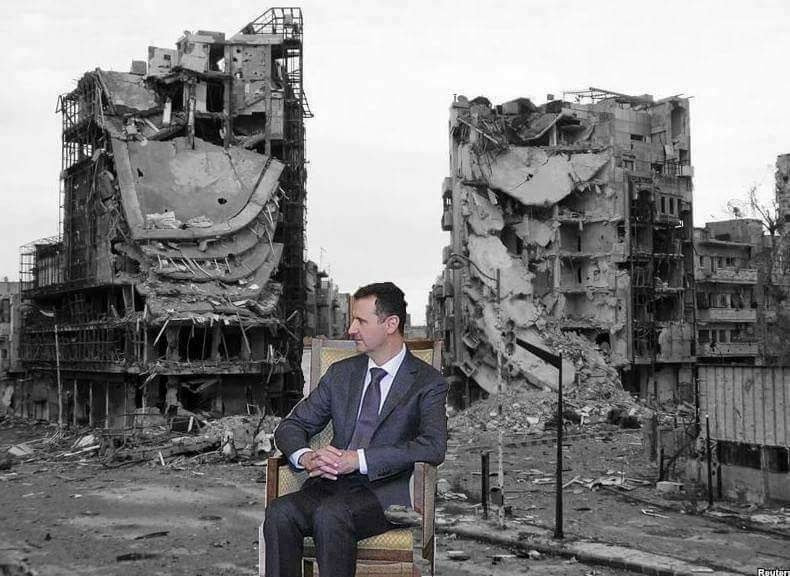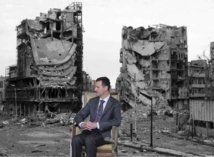Syria’s embattled president, Bashar al-Assad, has survived the country’s ruinous war, even as it rumbles on through its ninth year.
His forces - supported by his key military backer, Russia - have wrested control of large chunks of territory from Western-backed rebels and Islamic State militants.
But he is facing uphill challenges at home and from the outside world, according to analysts.
"At the end of 2019, al-Assad is certainly closer to winning the country's civil war. Still, he has a way to go before he can decisively declare victory," Sam Heller, a senior analyst with the Brussels-based International Crisis Group, said.
"I don't think the international community broadly is prepared to accept al-Assad's legitimacy and normalize relations with his government," Heller told dpa.
"Notably, the US and some of its Western allies have refused to back down from their demand of substantive political change in Syria through a UN-led political process. Their demands would seem to require al-Assad's abdication or removal, which at this point appears unlikely.”
Heller said as long as the Syrian political process is deadlocked, the international community can maintain crushing sanctions against Syria, and its political and economic isolation at a little cost to themselves.
The areas in Syria that remain outside the government's full control are not only a military challenge for al-Assad, but also a political one, according to Heller.
Heller was mainly referring to north-eastern Syria, where Turkey and Russia agreed on October 22 that they would jointly control a swathe of the area near the Turkish border, from which Syrian Kurdish militants were obliged to withdraw amid a prolonged ceasefire.
"Each of these areas is tangled in geopolitics, manifested most clearly by the mix of foreign military forces deployed on the ground. If the Syrian government is to recover these areas, those geopolitics need to be untangled, and Damascus can't do it alone," he said.
"For that, it [Damascus] needs Russia's help, either to help the Syrian army advance militarily or to diplomatically resolve international objections to the Syrian state's return," Heller said.
Ankara regards the Syrian Kurdish People's Protection Units (YPG) as a terrorist organization linked to separatist insurgents fighting on its soil.
On October 9, Turkey and its allied Syrian rebels launched an offensive in north-eastern Syria after US troops, who had earlier protected the Kurds, abruptly pulled out of the area.
Russia and Turkey, which back opposing sides in the Syrian war, have forged a delicate alliance in the past year.
Aron Lund, a fellow at the New York-based think tank Century Foundation, argues that al-Assad and his loyalists have won because they have defeated the attempt to overthrow him and end his regime.
The pro-Assad camp, according to Lund, has always been much stronger than its opponents because it controls the state.
"It had the army, it had the weapons, the economy, the experience, and the institutions,” Lund told dpa.
"There isn’t at this moment a serious threat to al-Assad’s continued rule over Syria, even if it rests on a weak, somewhat fragile foundation – a broken economy, foreign support, and so on," he said.
Lund doubts that al-Assad, who has been in power since 2000, has any plans in the near future to abide by a political deal that does not work out in his favour.
"Of course, if Damascus feels that the constitutional committee talks are working out in its favour, they may decide to use the process to their advantage," Lund said.
The UN-brokered committee tasked with drafting a new constitution for Syria was launched in October in Geneva with a total of 150 delegates equally representing the government, the opposition and civil society.
The panel’s talks, conducted in Geneva last month, ended inconclusively after the government and the opposition accused each other of stalling.
Al-Assad will not accept any deal where he is handed "a slip of paper that says he needs to leave power," Lund said.
--------------------------------------------------------------------------------------------------------









 Home
Home Politics
Politics











